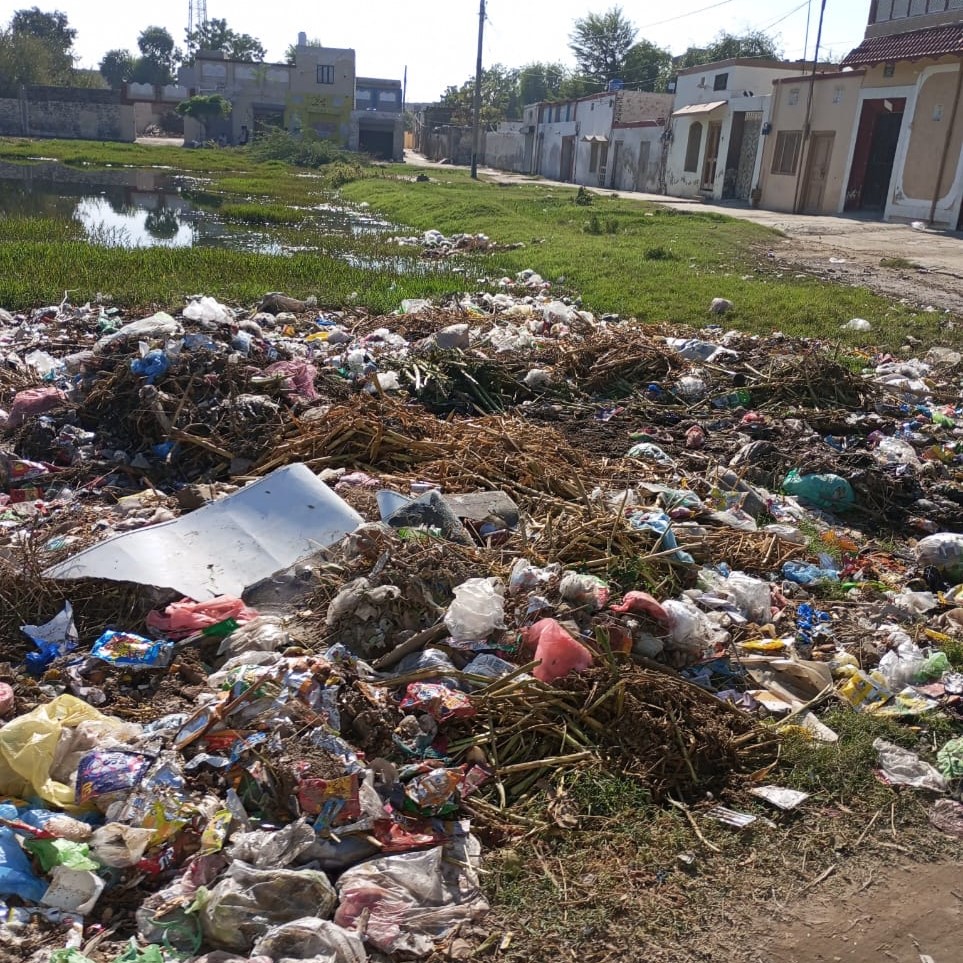Resident Teacher Latif is a professional tailor who has settled in the Chah Mir Khan Sumbalawala area for the past ten years. However, he is now tired of this region.
The Chah Mir Khan Sumbalawala locality is located approximately 1.5 kilometres away from the Kandian Town Committee, towards Kandian Mor. When you enter its narrow alley, you are compelled to think about how to go inside.
In this locality, the water in the gutters has been stagnant for quite some time. Teacher Latif informed Lok Sujag that as soon as someone steps out of their homes, one has to deal with unpleasant odours, mosquitoes, flies, and the splashes of standing water ruin clothes.
“Nearby is the Civil Hospital, and residents have to cross this puddle to reach the hospital. Despite numerous efforts by the local town and municipal committees, there has yet to be any improvement in the situation there.”
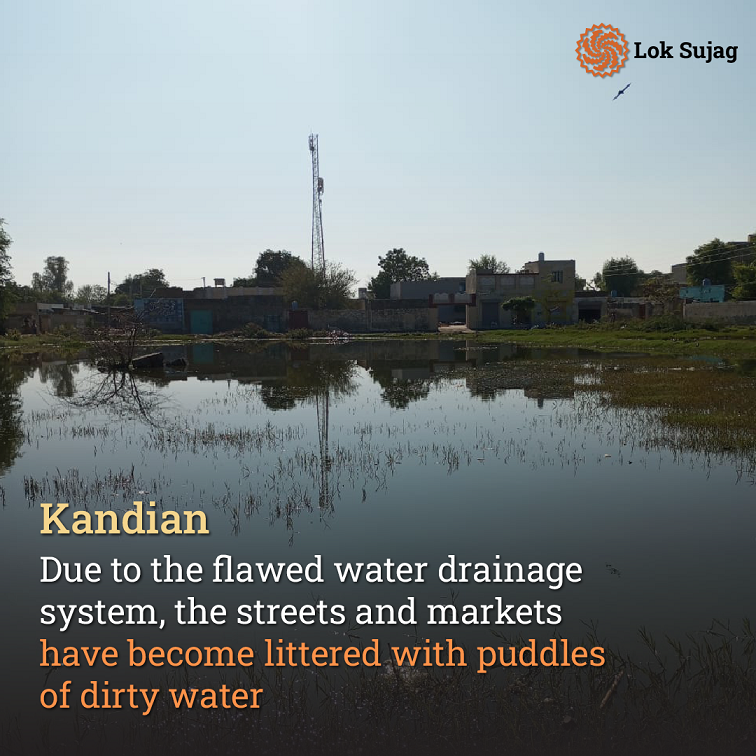
Kandian, located in the Mianwali district, is a bustling city in the tehsil of Piplan with a population of nearly 50,000. Of the total population of around 400,000 in Tehsil Piplan, only 96,000 constitute the urban population.
Kandian City also has a municipal committee, but due to the flawed water system, its streets and markets have become puddles of dirty water.
Without revealing his name, an administrative officer of the Kandian Municipal Committee mentioned that the administration took notice of a request from the Chah Mir Sumbalawala locality. However, the water standing there could not be removed with machinery. Therefore, the District Council Mianwali initiated a formal case, and it was decided that a sewerage line would be laid in this area to drain the water.
“A budget of 300,000 rupees was estimated for laying the sewerage line, but when the engineer visited the site, it became apparent that to clean the area, the sewerage line would have to pass through the church. If this couldn’t be arranged, the scheme would remain incomplete.”
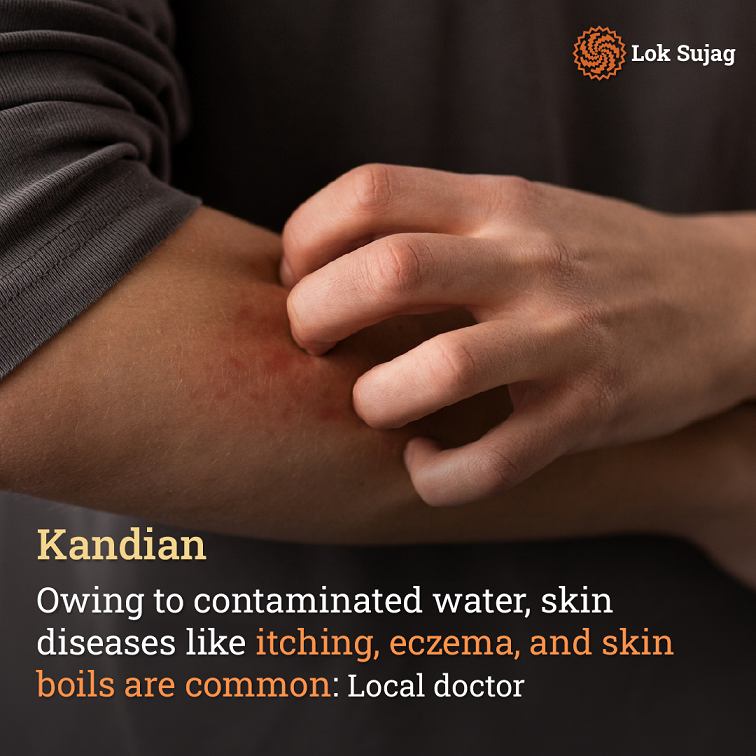
However, the head of the Christian community and church member, Hamid Gill, disagrees with this. While speaking to Lok Sujag, he expressed that the municipal committee employees want to escape accountability for their incompetence by blaming others. If they were regularly draining water using machinery daily, the water would not have gathered to this extent.
“Other areas of the city are also facing similar conditions. The old cemetery of Kandian, just one kilometre from the municipal committee, is surrounded by heaps of garbage on all sides. People living in nearby residential areas are troubled by the stench emanating from garbage and sewage water.”
Miss Fouzia, a 30-year-old, has been residing in the same area and is associated with the field of education. During a conversation with Lok Sujag, she said that as part of her daily work routine, she must navigate this dirty water daily. This is the reason she frequently falls prey to various illnesses.
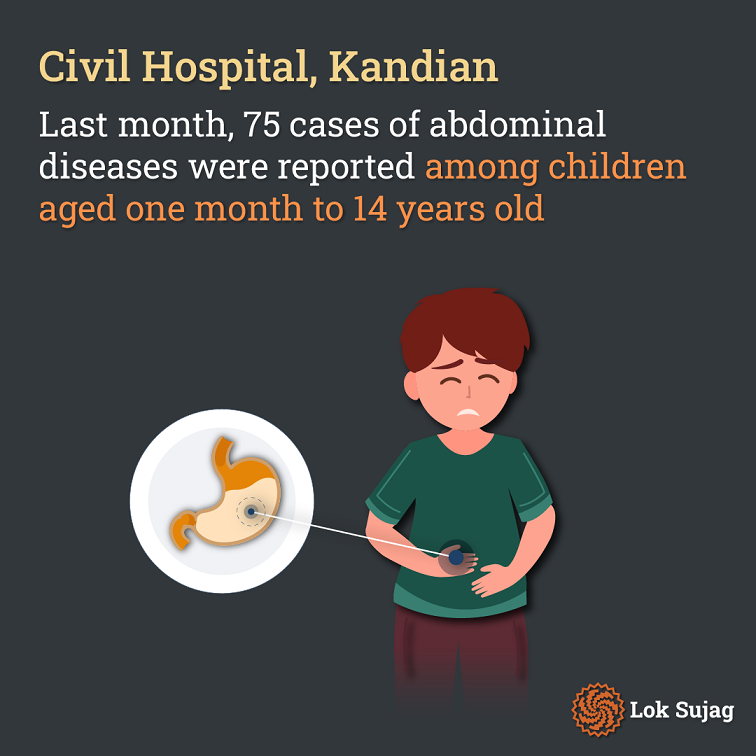
Dr. Kashif Hayat is a dermatology specialist at a private hospital. He informed Lok Sujag that diseases related to dirty water, such as itching, eczema, and skin boils, are common in this area.
“Since there are no specialists in skin diseases at Civil Hospital, it is impossible to determine the number of patients suffering from dermatological conditions accurately.”
Despite being centrally located in the district of Mianwali, Kandian City is deprived of basic facilities. Chashma Jheel, a reservoir just 20 kilometres from Kandian City, is an attractive tourist spot.
The significance of this city increases as it marks the last village of Punjab. However, due to the lack of attention from the authorities, the vibrancy of this city has diminished. Piles of garbage in various places, puddles of dirty water, and the resulting stench have marred the beauty of the area.
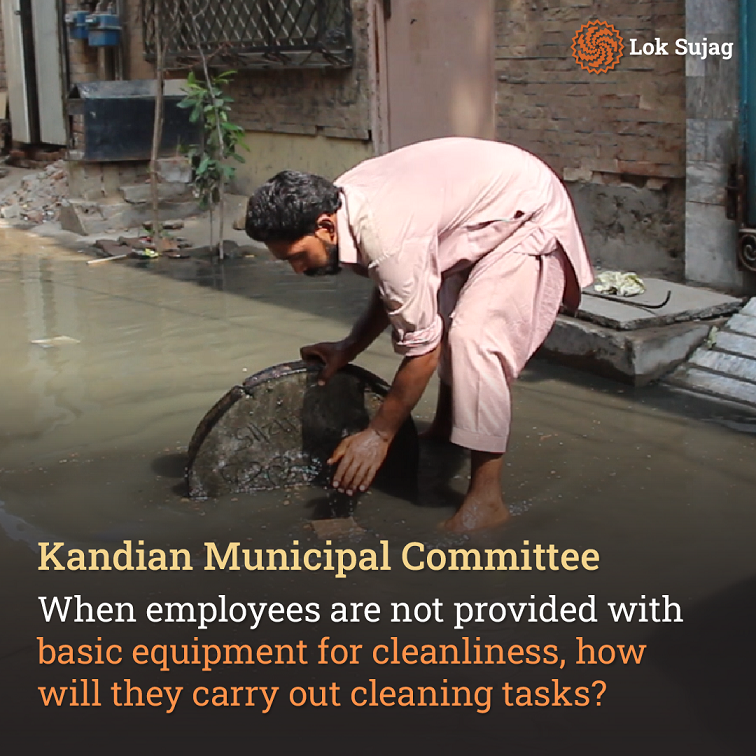
Kandian Municipal Committee’s Administrator Assistant Commissioner is Ijaz Abdul Karim, who is stationed at the Tehsil Office.
Union Council Head Clerk Javaid Iqbal is managing the day-to-day affairs of the committee.
Javaid Iqbal informed Lok Sujag that he currently has 24 employees, while the actual requirement is for more than 50 employees. Out of the 24, 17 employees are on daily wages.
“If the employees are not provided with the basic equipment for cleanliness, how will they carry out the cleaning tasks?”
He says that the committee receives 34,00,000 rupees from the government every month, including expenses for pensions, salaries, and daily wages for those working daily. Electricity bills, machinery maintenance, etc., are also covered in this budget.
In response to a question, he stated they have two loaders, three tractors, two tractor trolleys, and three petrol engines in their machinery. Six drivers have been hired to operate these machines, and four sanitation workers are on duty for sewage. However, a few individuals cannot solve sewage-related issues in a city with such a large population.
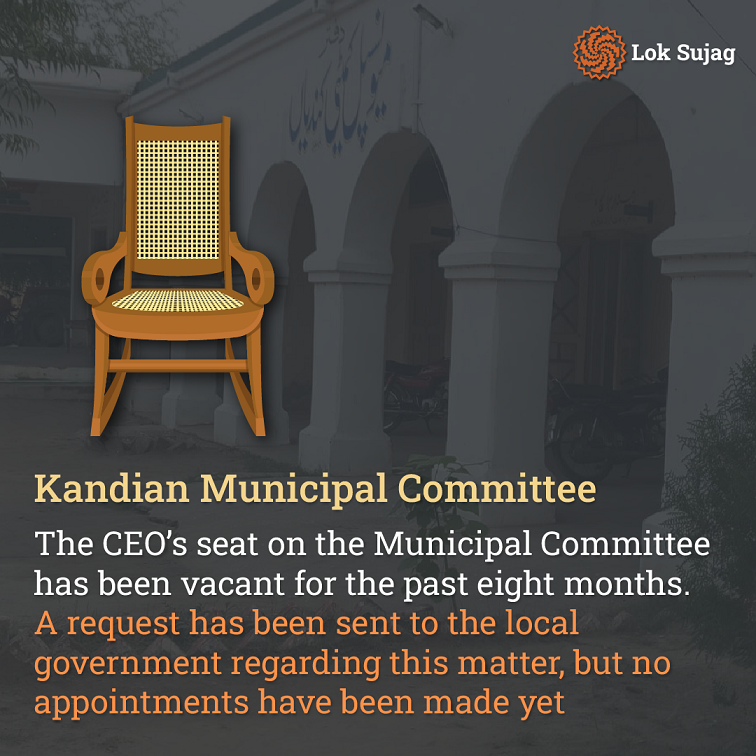
“While the administration is grappling with a shortage of staff and machinery on one hand, residents are also exacerbating the problems. Complaints are filed against the Municipal Committee in the district magistrate’s office, citing these complaints as the reason why no Chief Executive Officer (CEO) has been able to work in the committee so far. They either get transferred or resign in frustration. The Chief Officer’s seat has been vacant for the past eight months, and a request has been sent to the local government regarding this matter, but no appointments have been made yet.
On the condition of keeping his identity confidential, a senior clerk at the office of the District Magistrate, Mianwali, informed Lok Sujag that transferring the Chief Officer was an administrative matter. Residents have never filed complaints regarding this issue; however, immediate action is taken whenever a request is received regarding the performance of the Municipal Committee.
Also Read
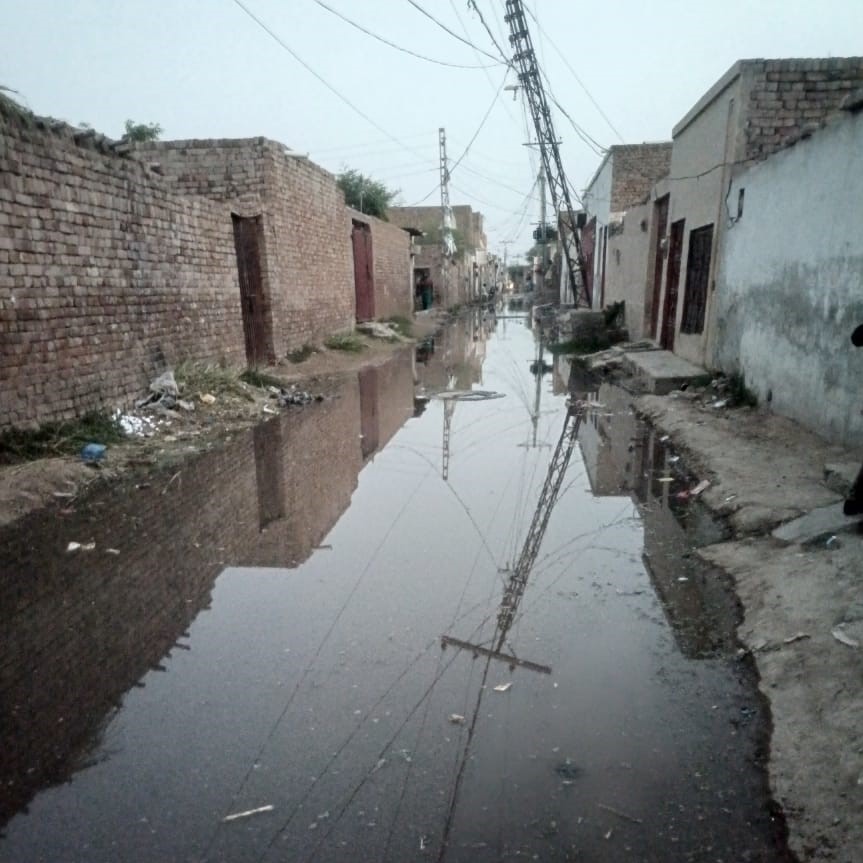
Sewage problems in Kabirwala: Urgent need for upgrading and expanding the sewerage system
A daily wager, also under the condition of anonymity, stated that residents, based on personal biases, often block open drains by putting bricks, stones or quilts. Sometimes, when employees go to drain sewage, they are harassed by influential individuals.
According to the statistics from Civil Hospital, in the past month, there have been 75 reported cases of abdominal diseases among children aged 1 to 14. These include four cases of intestinal worms, four cases of typhoid, one case of hepatitis, five cases of dysentery, five cases of abdominal pain, and five cases of malaria.
Dr. Sameena, the head of the children’s ward, said that these statistics may not accurately reflect diseases spread by contaminated water because, in most cases, people turn to private hospitals.
Dr Amina, an appointed doctor in a private hospital, informed Lok Sujag that there is generally a lack of awareness regarding hygiene in the city, especially among women. She treats abdominal diseases with traditional remedies. People only turn to the hospital when the situation worsens and water starts flowing over their heads.
Published on 29 Nov 2023
